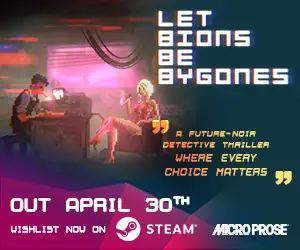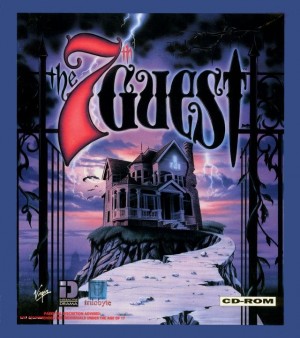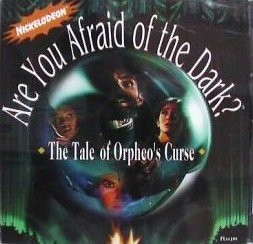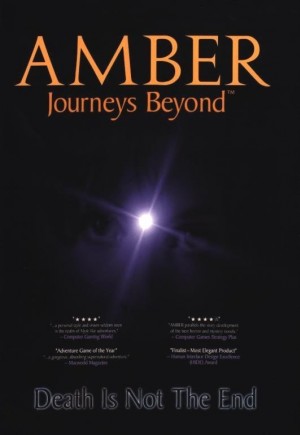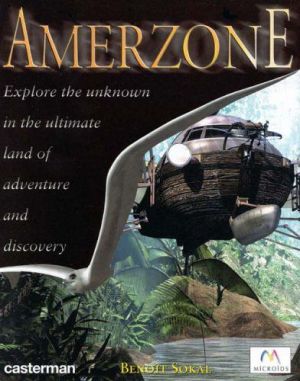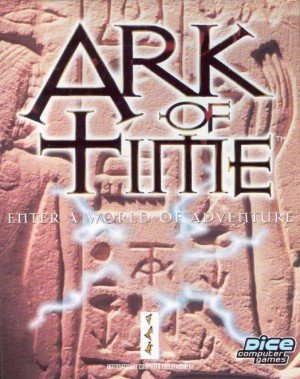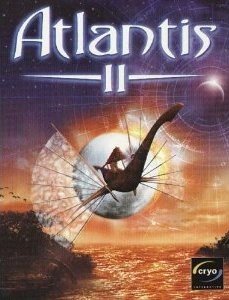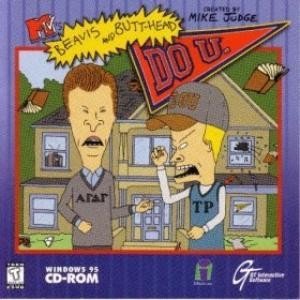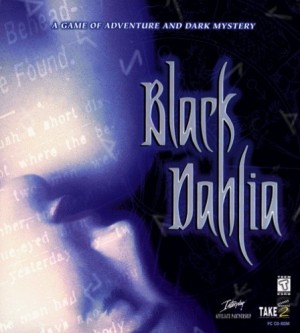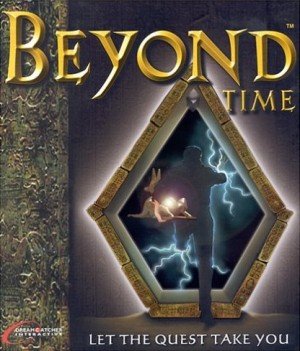IF Week Part 4: Five IF Personalites page 4
If you truly wish to become an Interactive Fiction geek, it is important that you become familiar with some of the more notable authors. In this article, I will profile five important names in the IF community that you want to get to know, and whose games you will want to become familiar with. Three of these authors were kind enough to grant me an exclusive (albeit brief) interview, for which I am very grateful.
I hope that I am truly doing some good by introducing many to the wonderful and sadly overlooked text adventure scene. If you have any questions or need any further advice, please feel free to e-mail me.
Let's get started!
Graham Nelson
Notable games: Curses!, Jigsaw, The Meteor (shortened title)
Aliases: Angela M. Horns
Website: Graham does not have a personal website, but the home page for his Inform language can be found here.
Biography: Even if he wasn't an exceptional game author, Nelson would be a notable name simply for the fact that he has contributed the single most important element to modern-day interactive fiction: the Inform programming language, which instantly became the language of choice for nearly every notable IF author. Inform uses simple and intuitive syntax, a style similar to C and C++ so experienced programmers can transfer easily, and compiles to Z-code (the Infocom format).
Nelson's games are no slouch, though; the classic Curses, which Nelson wrote the Inform language for, is a brilliant showcase of the language's abilities. The Meteor, The Stone, and a Long Glass of Sherbet (submitted under the name of Angela M. Horns so as to avoid unfair bias) garnered Nelson a 1st-place finish in the 1996 IF Competition.
I attempted to reach Nelson, and was sadly unable to. Without his creation we may never have seen such brilliant games as Photopia and Anchorhead. The community is forever in his debt, and I hope that he will resurface and contact me someday; I would love to pick his brain.
Adam Cadre
Notable games: I-0, Photopia, Varicella, Shrapnel
Aliases: Opal O'Donnell (Photopia was released under this name at first)
Website: Cadre's homepage, contains sections devoted to his games as well as Adam's prose, photography, and other hobbies.
Biography: In this author's opinion, Cadre is the single greatest author of interactive fiction in the last ten years. Part of his magic is that the games he has created are so incredibly varied. His first major work was I-0, a dark comedy about a college girl trying to hitch a ride home. His next game was the immortal Photopia, which steered IF into a whole new direction of puzzleless storytelling. Cadre struck violently against this very trend the next year with Varicella, which is anything but on rails. Cadre has released other short games that are well worth playing. His creativity and skill in writing, and drawing raw emotion out of the player, is second to none.
He was also kind enough to answer a few questions for me:
How did you get started playing text adventures?
I've never really been big on playing them. The first one I saw was Scott Adams's Impossible Mission in 1982. The first one I bought was Infocom's Trinity, and after a full year I hadn't made it out of the prologue. In 1992 I bought Lost Treasures of Infocom 2 mainly because I had $50 in my pocket to buy Star Control II and it turned out that Star Control II had been delayed yet again. I liked LTOI2 enough that in 1996 I bought the Masterpieces of Infocom CD, which had information about the IF revival. That led me to look at a lot of the modern stuff, but I still don't really play IF for pleasure. I *write* IF for pleasure.
What IF work of yours are you most proud of, and why?
Varicella, because it's the richest experience: it has by far the most stuff to see and do.
Besides your own works, what is your favorite work of IF from the past eight years?
I don't know that I have a favorite. Possibly Galatea.
Do you generally enjoy graphic adventure games?
I've only played a few. Loved Star Control II, of course. Monkey Island was also great. But for the most part they're not really my thing.
What is the current state of the IF community, compared with where it's been in the past few years?
Right now it seems to be in an awkward stage where significant games aren't being released frequently enough to sustain an ongoing conversation about actual IF work, but enough irritable and eccentric people are hanging around to sustain an ongoing, unpleasant conversation about tangential issues. At least this is where things stood when I sort of checked out, earlier this year — I'm still working on games and such, but am no longer involved in the day-to-day chatter.
Andrew Plotkin
Notable games: A Change in the Weather, So Far, Spider and Web, Shade
Aliases: Zarf
Website: Zarfhome is a pure-text site full of content, including all of Plotkin's IF games and much more.
Biography: Andrew Plotkin is revered as a top-notch storyteller. He burst onto the scene in 1995 with the competition-winning A Change in the Weather, then topped himself the next year with the breathtaking So Far, one of the most analyzed games in the history of IF. His games are puzzle-heavy and some feature very cruel timing; Spider and Web is the best example of this.
Plotkin is a joy to talk to; I thank him for being willing to answer these questions for me.
How did you get started playing text adventures?
My father brought home a brand-new computer, a copy of Zork 1, and the first three Scott Adams adventures. (Not the Dilbert guy.) This was in 1980 — just after the release of the Apple II+, electricity, and the stirrup. Text adventures were the best stuff out there.
No, wait, truly I tell you a lie. I had played the original Adventure (Colossal Cave) on a mainframe at my father's office, several months earlier. Dumb terminal, line printer, and all, with a huge stack of green-gridded fanfold paper as output. I solved the troll bridge puzzle entirely by myself; and I was hooked.
What IF work of yours are you most proud of, and why?
I go back and forth between answering So Far and Spider and Web.
So Far is more evocative, more intense, and I think I managed to get more emotional depth into it than anything else I've written. It also provoked a lot of discussion when it appeared. I would say it had a great deal of influence on the development of (early) modern IF. That pleases me, and not just on my own account. If I was able to widen the scope of IF's possibilities for the whole community — and, egotistically, I believe I did — then that's an achievement to be proud of.
Spider and Web is more clever and more intricate. It contains the single puzzle, or puzzle-scene, that I'm most proud of in my work. But it also contains a lot of partial successes. Some of the elements I tried to make compelling, such as the long-running conversation between the PC and NPC, came out pretty weak.
I'd say Spider & Web is a slightly better game overall, but of course by the time it appeared — less than two years after So Far — there was tremendously more variety and experimentation and talent whizzing around the community.
Besides your own works, what is your favorite work of IF from the past eight years?
I'm afraid I'm a couple of years behind the times, actually. I haven't played many of the most recent games. I keep up to date on the short games of the IF Competition, but between competitions I've been tracking other stuff than IF.
So, favorites... Anchorhead, for care and breadth. Worlds Apart, for encompassing an author's true inner world. Photopia, for rawness — or maybe I should say Little Blue Men. Rameses for — oh, the heck with it, I don't need to justify all of these.
A complete list would go on for a very long time, anyhow. Looking for perfect games is silly; I wind up looking for games that have something perfect within them. This happens more often than you might expect.
Do you generally enjoy graphic adventure games?
Well, I've written detailed reviews of — let me see — one, two, mmm, about forty-four graphical adventures. (Up to 48, if you count action games with strong adventure elements.)
Evidence is thus tending towards "yes".
I'm a couple of years behind in this category, too. Not because there are many graphical adventures — there are barely any, it seems — but because I'm playing on a Macintosh, and PC games are only accessible via an emulator. Recent games don't run well under emulation, even on the beefiest Mac.
Where do you see the IF scene going over the next few years?
Northwest.
Emily Short
Notable games: Galatea, Metamorphoses
Aliases: None so far
Website: Emily's website contains many interesting essays on the topic of IF, as well as an absolutely fantastic list of recommended IF games.
Biography: Emily Short is notable for being the most prominent female author in the IF community. Her attention to the details and complexity of an NPC is notable, and she has also been responsible for starting some very interesting competitions, such as the fascinating WalkthroughComp.
Short's first game, Galatea, drew absolutely rave reviews for aspiring to a new level of art in interactive fiction. The complexity of the titular NPC can not truly be discovered until the conversation has been played through multiple times, and the layers of psychology involved have been examined deeper. Who knows how many times it takes to see everything in this game.
She continues to be active in the IF community, and I look forward to her future offerings. I thank her for submitting her answers to my questions as well.
How did you get started playing text adventures?
My parents are both pretty tech-aware, and my mother in particular has been programming professionally since before I was born. So they bought and played Infocom games, and I watched them play (and eventually played them myself). This was when I was five or six years old, so I don't remember it very clearly. But I do remember that even then I badly wanted to make a game of my own. I used to draw little maps, and I once typed in a BASIC text adventure from a book, which then played on my Vic 20. It wasn't very satisfying, though. I tried again later, when I was twelve or thirteen — still in BASIC. The results were pretty dreadful, because I didn't understand the concept of a parser, let alone have any notion how to write one. The game would only respond if you used exactly the correct commands. Needless to say, that didn't get finished either.
When I was in college, a friend of mine (who knew about my early love of text adventures) introduced me to the world of modern amateur IF, and at that point I realized I actually had a hope of writing something on the same level of technical sophistication as the Infocom games.
What IF work of yours are you most proud of, and why?
I have a soft spot for my first game, Galatea, which consists of a conversation with a single person. I enjoy writing IF partly because I like trying to push the boundaries of the genre and do things that have not been done before, but Galatea was a bigger leap than anything else I've written since.
Galatea is also the game about which I've gotten (and continue to get, years after releasing it) the most powerful responses from people. I've received artwork and music that people created in response to playing it — which is, in my opinion, the hugest compliment possible.
Besides your own works, what is your favorite work of IF from the past eight years?
Andrew Plotkin's Spider and Web. It has, to my mind, a nearly perfect combination of plot and puzzle: none of the puzzles feel out of place, and they are all significant and advance the action as well.
Do you generally enjoy graphic adventure games?
The few that I've played, I've enjoyed a lot. I'm a graduate student on a small budget, however, and I have an aging Mac laptop without very much memory. So when I play graphic adventure games, it's usually because I'm using a friend's computer. And I don't have a very good sense of the state of the field.
Do you think being female changes your perspective on game design?
I want to say no on general principle. I tend to alternate fairly evenly between writing male protagonists and female ones, for instance. I've written the occasional romantic plot, but so have male designers. And I've heard it suggested that I am especially interested in non-player characters because women are naturally more attuned to human interactions than men are, but I think that's mostly bogus. There are certainly other female authors — Suzanne Britton and Kathleen Fischer come to mind — who have also devoted a lot of effort to their NPCs. But then so has Adam Cadre, say.
So I don't really think there's anything serious to extrapolate here. As with most gender-related questions, I think there may be trends — women are more likely than men to do thing x or thing y — but those trends are just general statistics, and in any given case may be overridden by a person's individual background, talents, and personality.
Ian Finley
Notable games: Babel, Exhibition, Kaged
Aliases: Domokov
Website: None
Biography: Ian Finley established himself as a masterful author of science fiction with Babel; this mantle was cinched by the brilliant Kaged. Not to be pigeonholed, Ian also is the author of the short "play-in-the-dark" horror story All Alone.
While most prominent IF authors (such as the other four covered in this article) remain fiercely loyal to Inform as their language of choice, Finley never strayed from TADS, and this allowed him to use the multimedia features of TADS to his advantage (as evidenced by the pictures in Kaged).
I had hoped to question Finley about his writing influences, as well as his adherence to TADS, but I could find no way to contact him. He has not submitted a game since Kaged took home the gold in the 2000 IF Competition, and appears to have disappeared entirely from the community. I can only hope that he will make a return someday with another absorbing science fiction adventure.
Tune in tomorrow as I wrap up Interactive Fiction Week with some tips for aspiring IF programmers!



